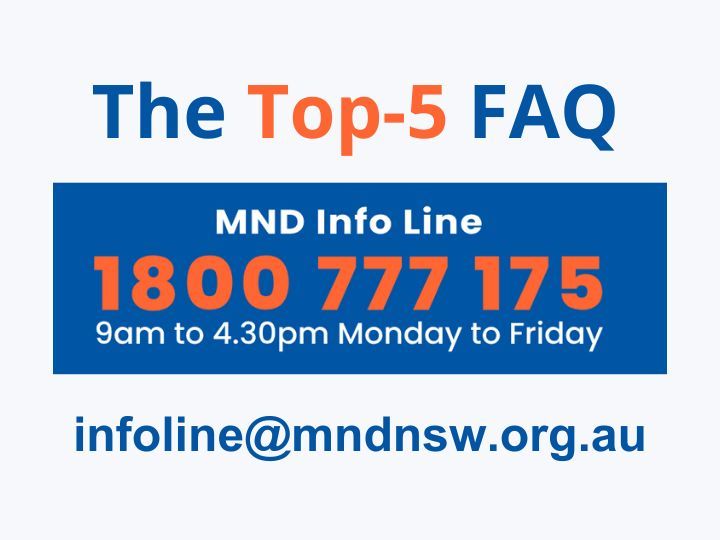DonateLife Week is from Sunday 23 July to Sunday 30 July.
Most Australians believe it’s important to be an organ and tissue donor, yet only one in 3 are currently registered. This week aims to raise awareness and encourages more people to talk to their family and to register to become a donor.
Biobanking
Biobanking refers to the process by which samples of bodily fluid or tissue are collected for research use to improve our understanding of health and disease. Biobanking is a way that people diagnosed with MND can participate in research by providing samples e.g. hair, blood and urine to research centres at any point after diagnosis.
You can hear people from the UK living with MND share their experience of taking part in biobanking such as the reasons they took part, the information they needed and the concerns they had here: Biobanking - Overview (healthtalk.org)
Neurodegenerative Diseases Biobank – MQ
Established in 2013, the Biobank at Macquarie University is part of the MND research program and holds more than 37,000 biological samples from 800 participants. In addition to samples, the Biobank collects extensive demographic, lifestyle and clinical data. These samples and data are an invaluable resource for researchers to increase understanding of MND, and to identify treatments and preventative measures.
Find out more here: Macquarie University - Neurodegenerative Diseases Biobank
You can also watch a 3-minute presentation recorded in November 2020 - Neurodegenerative Disease Biobank - YouTube
Statewide Biobank
The NSW Health Statewide Biobank (NSWHSB) is a state-of-the-art storage facility, for tissue samples, DNA and blood samples which are used for vital research into population health, as well as human illness and disease. NSW Health Statewide Biobank
Donating organs and tissue for research
There are two research centres in Sydney that are accepting Brain and Spinal Cord donors of different clinical and genetic subtypes of MND. Macquarie Neurology and the ForeFront clinic at the Brain and Mind Research Institute both have a donation program. Potential donors need to be clinically assessed and enrolled into the program by Professor Matthew Kiernan or Professor Dominic Rowe.
It is preferable that donors reside in the Sydney Metro region, however patients who live approximately 1 hour/1.5 hours out of Sydney will be considered (e.g., Central Coast, Wollongong). Patients who live outside this radius unfortunately cannot be enrolled.
For further information on these programs, visit:
- Macquarie Neurology
Contact the Biobank Manager: Sarah Furlong,
- Forefront/University of Sydney
General enquiries:
Sydney Brain Bank - Frequently Asked Questions (FAQs) - Sydney Brain Bank (neura.edu.au)
Donating organs for transplantation
It is important to understand the differences between organ donation for transplantation and organ donation for research. It is also important to realise that even with your wishes explicit and made known to doctors, organ donation is not always a straightforward process, especially if there are other factors to take into account.
To summarise:
- If you wish to donate your organs for transplantation, there is no automatic exclusion for MND
- If you wish to donate your body or parts of your body to general medical research through DonateLife, this is viewed as equally important as donating organs for transplantation. If you want to donate your brain and spinal cord specifically to MND research, there are options for this listed above.
- If you wish to donate tissue for transplantation (i.e. skin, bone, eye) there is also no automatic exclusion for MND except for eye tissue for the purpose of corneal transplantation – for which there is a long list of exclusions including MND, multiple sclerosis, Alzheimer’s and Parkinson’s.
- In order to donate organs for transplantation, the registered donor needs to be in an intensive care unit and connected to a ventilator at time of death. The specialists and transplant team will then decide, once the donor’s medical history and organ function have been reviewed, whether any organs can be transplanted.
- It is important to realise that organs are donated in only 2% of deaths in hospital - and that tissue is donated in 33% of hospital deaths. The donors next of kin must also be aware of their wish to donate and also supportive of that decision.
So, while MND is not automatically excluded, it still may be difficult to donate however willing you are and however willing your family are to ensure your wishes are followed. Biobanking is a way you can contribute relatively easily to research if you would like to, and then some people may also wish to find out more about the brain and spinal cord donor program.




